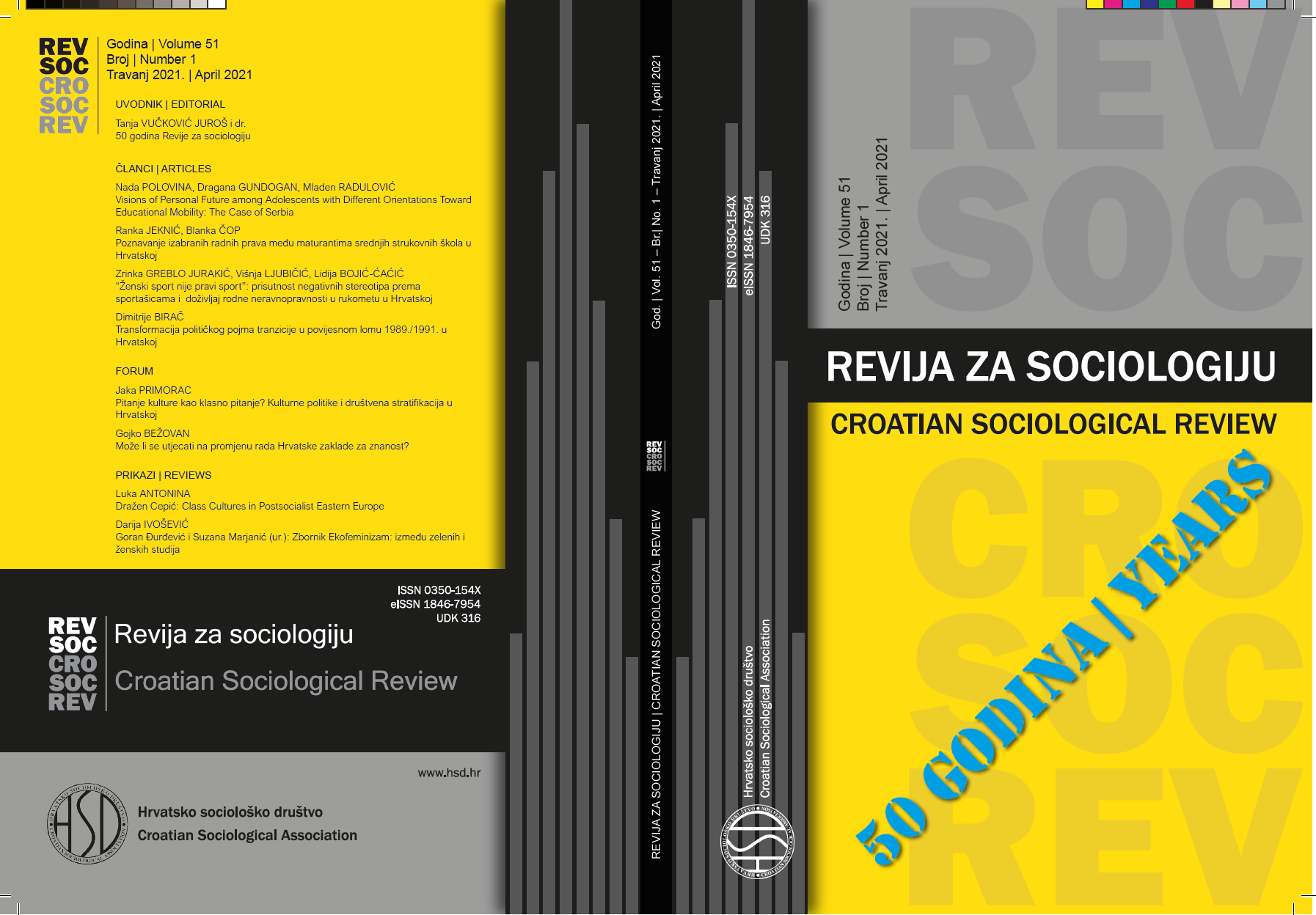Visions of Personal Future among Adolescents with Different Orientations Toward Educational Mobility: The Case of Serbia
Visions of Personal Future among Adolescents with Different Orientations Toward Educational Mobility: The Case of Serbia
Author(s): Nada Polovina, Dragana Gundogan, Mladen RadulovićSubject(s): School education, Sociology of Education
Published by: Hrvatsko sociološko društvo
Keywords: visions of personal future; career visions; educational mobility; Serbia;
Summary/Abstract: Research of contemporary societies emphasises the importance of global economic circumstances, political uncertainties and social inequalities for young people’s visions of their personal future. This research is focused on general and career-specific aspects of adolescents’ visions of personal future and how these relate to adolescents’ orientation toward educational mobility. Educational mobility is determined by the equivalence/non-equivalence of parents’ levels of education and their offspring’s educational aspirations as expressed at the end of secondary schooling. According to this principle, three groups of participants were defined and their differences were analysed with respect to (a) general aspects of their visions of personal future, (b) career-specific aspects of their envisioned future, and (c) the perception of factors on which the achievement of career visions will depend. Significant differences among the three groups have been found in general and career-specific visions of the future. The findings of the study indicate that students who plan to attend university are more preoccupied with career and perceive personal characteristics as more important factors for achieving career goals than students without such plans. Finally, this paper suggests that, in order to fully understand young people’s visions of personal future from a micro and a macro perspective, it is fruitful to integrate psychological and sociological approaches.
Journal: Revija za sociologiju
- Issue Year: 51/2021
- Issue No: 1
- Page Range: 21-50
- Page Count: 30
- Language: English

